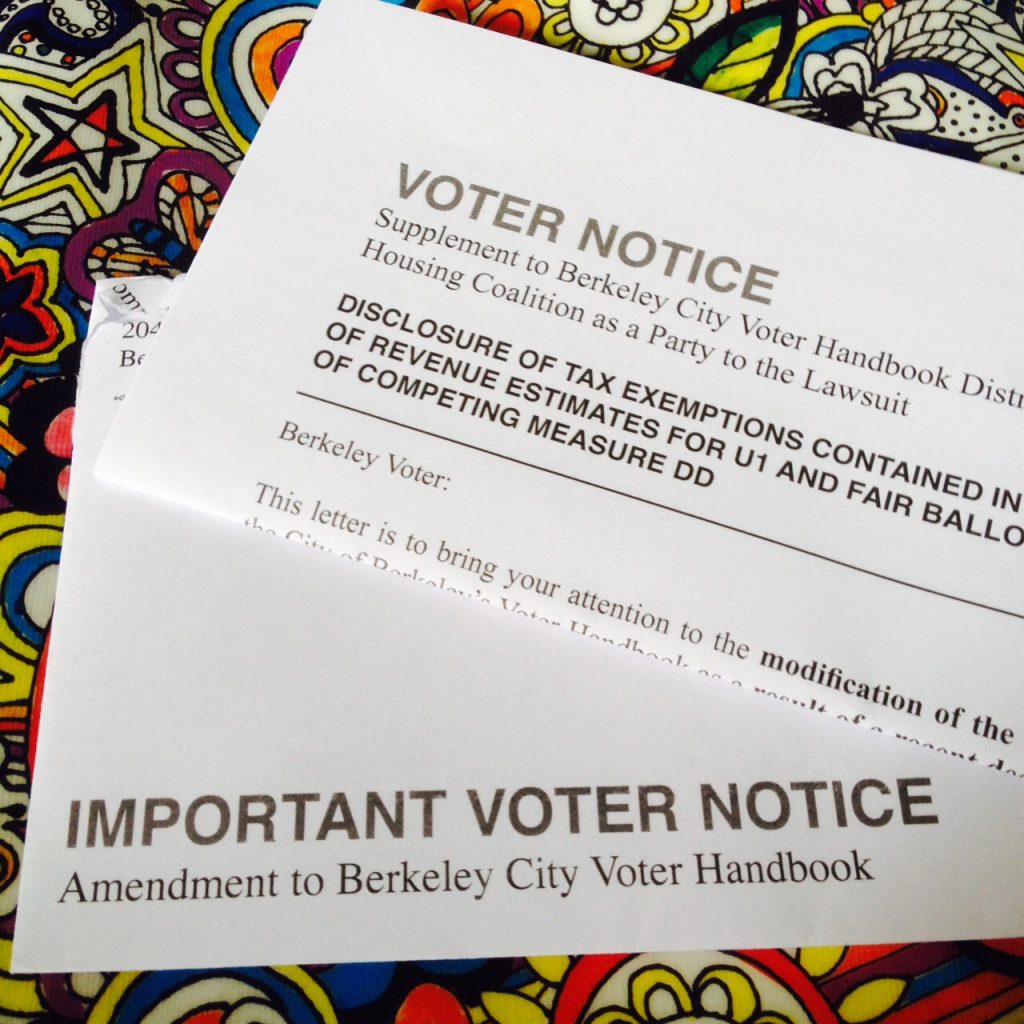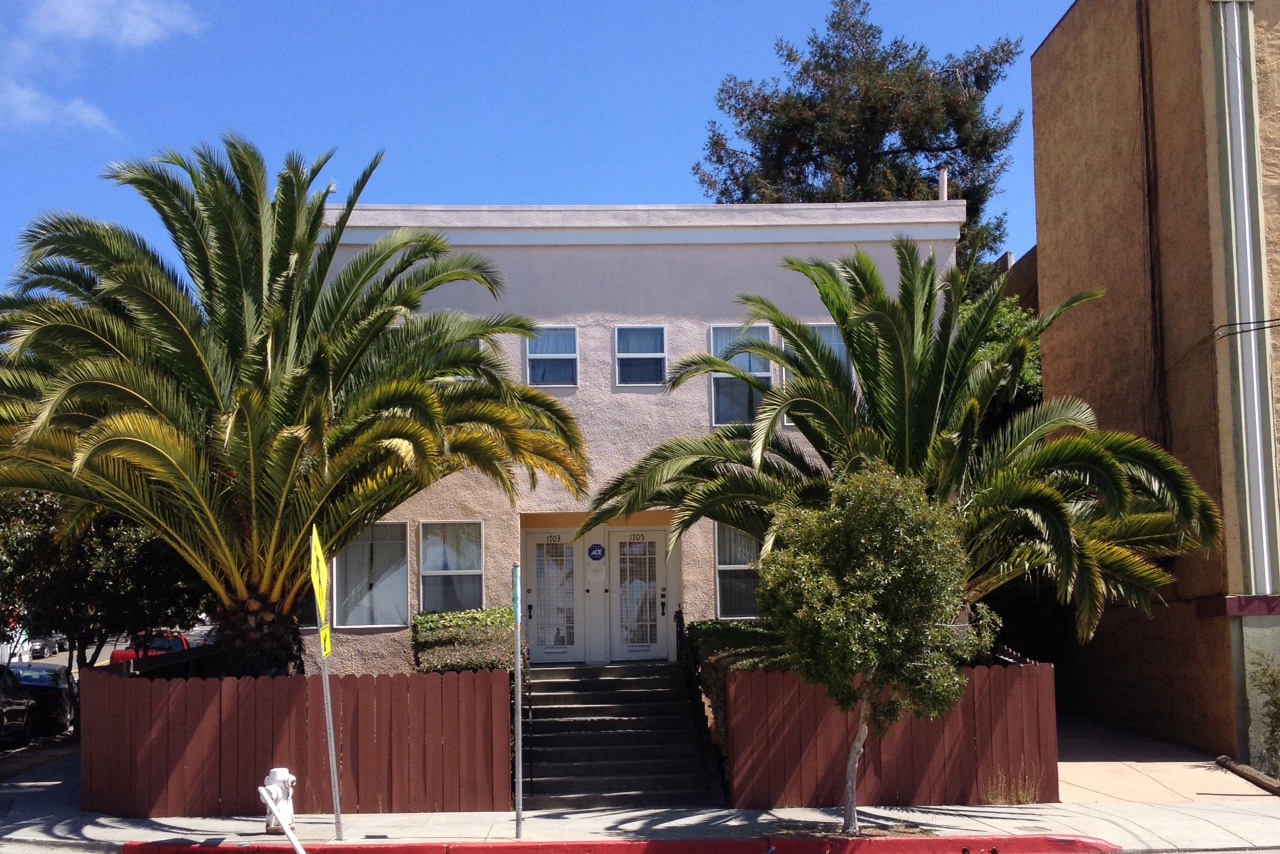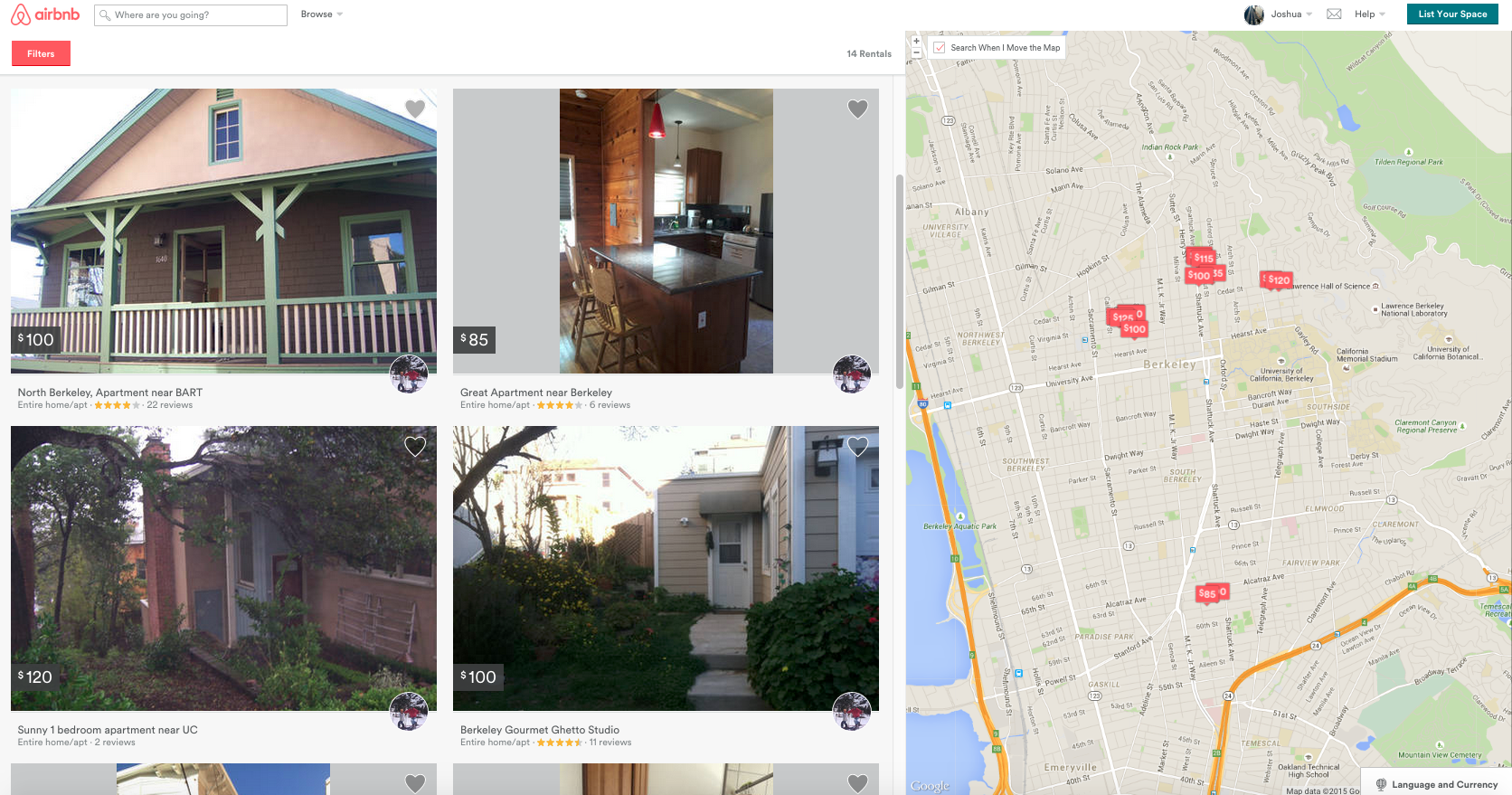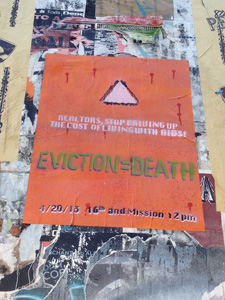
Leaders of the Berkeley Property Owners Association – including owners of Premium Properties, Shaw Properties, Everest, real estate agent Jon Vicars, legal advocate Michael St. John, and the notorious Lakireddy family – have formed a new political coalition. Is their primary purpose to run candidates for the Rent Board? No. Is it to bring lawsuits like the 2012 libel cases, to scare tenants away from running for election? No. We fully expect them to do those things as well, but the Berkeley Rental Housing Coalition is landlords pooling their money mostly to sue the Rent Board over a $19 increase in the registration fee. It was the first increase of the fee, which funds the Rent Board agency, in six years.
“…She was more concerned that lawsuits funded with PAC money could divert the board from its mission. ‘I think (the landlord’s) interest may be more in the board spending time and money to defend it, thus taking away from our core services.’ ”
http://www.insidebayarea.com/breaking-news/ci_28332932/berkeley-landlords-plan-coalition-challenge-rent-board
CA Supreme Court Upholds San Jose Requirements for Developers – But Inclusionary Housing Ordinance Will Not Apply To Rentals!
The state Supreme Court upheld the right of a city to impose affordable housing requirements on developers of for-sale housing, but let stand the 2009 Palmer decision, which said cities cannot limit the rent a developer can charge for newly built rental units because of the state Costa-Hawkins law. The decision also made it clear that a nexus study is not required because cities do not have to prove that the demand for affordable housing was created by the development of new buildings.
The ruling will impact over 170 local governments with similar inclusionary housing requirements and allow Berkeley to move forward with inclusionary laws. It’s good news for anyone who might scrape it together to buy some “affordable” housing, but bad news for folks who are pretty sure they will be renters for the rest of their lives. The decision again shows the need for tenants to come together statewide to change the Costa-Hawkins law.
“The Court noted that many land use regulations result in a reduction in the market value that a property may command in the absence of regulations and this does not constitute a taking of the diminished value of the property. In this regard, the Court reasoned that the affordable housing requirement was no different than limitations on density, unit size, number of bedrooms, required set-backs, or building heights.”
http://www.jdsupra.com/legalnews/california-supreme-court-upholds-88596/
California Building Industry Association v. San Jose Decision
CA Building Trades Vs San Jose final
Berkeley Student Paper Discusses Inclusionary Case
www.dailycal.org/2015/06/16/california-supreme-court-ruling-sets-precedent-for-inclusionary-housing-in-state/
For More Info on Costa-Hawkins:
“The Costa-Hawkins Act is not only contributing to soaring rent prices, but it’s also creating barriers to new housing construction.”
http://www.eastbayexpress.com/oakland/its-time-to-overturn-the-state-ban-on-rent-control/Content?oid=4229744
Another Tenant Screwed By Costa-Hawkins
http://crowandrose.com/2013/12/another-tenant-screwed-by-costa-hawkins/
Berkeley Tenants send huge hugs to the families of all the young people lost or hurt at Library Gardens.
Faulty Construction Likely Cause of Balcony Collapse
“The horrible structural failure of a 5th floor balcony that killed six and injured seven…has brought to the forefront the issue of safety in the frantic construction of apartment buildings mushrooming the city.”
http://dissidentvoice.org/2015/06/berkeley-structural-tragedy/
Deadly Balcony Collapse Tied to Rotted Wooden Beams
http://www.foxnews.com/us/2015/06/17/collapsed-berkeley-balcony-reportedly-not-intended-for-large-group/
A History Of Housing Safety Complaints
“The apartment complex’s housing code violations included holes in walls, trip hazards from damaged floors, loose metal strips in doorways, inoperable ceiling fans in laundry rooms and missing or inoperable exit signs throughout the building. The majority of violations were found during a random September 2013 city inspection of several low-income and affordable housing units in the complex.”
http://www.latimes.com/local/lanow/la-me-ln-berkeley-code-violations-20150619-story.html
Berkeleyside Report On Builder Track Record
“As it turns out, however, there was also a $3.5 million settlement in 2013 in Millbrae related to waterproofing and wood rot. And, that same year, Trestle Glen Associates, in Colma, filed a breach of contract lawsuit, still underway, against Segue related to ‘water intrusion causing tangible property damage.’ ”
http://www.berkeleyside.com/2015/06/17/firm-that-built-berkeley-complex-has-been-fined-sued/
Builder Under Scrutiny BEFORE Balcony Collapse
“The building has been the subject of numerous complaints, both through the city and online. The most recent official complaint, submitted in February to the Berkeley Rent Board, listed missing or broken stairwell lights, missing handrails on stairwells, holes in the walls of public spaces, expired fire extinguishers, and peeling floor material that posed a tripping hazard.”
http://www.berkeleyside.com/2015/06/17/berkeley-building-under-scrutiny-before-balcony-collapse/
Protest Calls For Investigation, Halt for New Construction
A group of concerned citizens has called for a moratorium on new building construction in Berkeley until the tragedy at Library Gardens can be analyzed. The Berkeley Daily Planet posted an editorial with a similar suggestion.
Protesters’ Letter to Council Linked Here
http://www.berkeleyside.com/2015/06/19/protesters-demand-a-halt-on-new-construction-in-berkeley/
Daily Planet Suggests Pause for Building Approvals
http://berkeleydailyplanet.com/issue/2015-06-12/article/43421?headline=Ask-Council-to-Analyse-Problems-Before-Scheduling-New-Construction–








